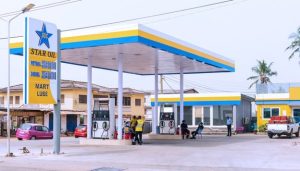
What Is an Employer of Record Nigeria?
Employer of Record Nigeria is a strategic employment solution where a third-party provider legally hires and manages employees on behalf of foreign or local companies operating in Nigeria. This model is especially vital in complex, highly regulated sectors like petroleum, where non-compliance can result in hefty fines, legal disputes, or halted operations.
The Employer of Record (EOR) becomes the legal employer of record, handling:
-
Risk management in line with Nigerian labour laws
Meanwhile, your company maintains control over daily operations and work assignments.
Why Petroleum Companies Need an Employer of Record Nigeria
The Nigerian petroleum industry, a cornerstone of Africa’s economy, operates under stringent government regulations. Navigating local employment law, union expectations, and benefit standards can be overwhelming without local expertise.
Key Advantages of Using an EOR in Nigeria’s Petroleum Sector
| Benefit | Description |
|---|---|
| Rapid Onboarding | Hire qualified engineers, geologists, and field workers in days. |
| Legal Compliance | Avoid misclassification or labour law violations with local experts. |
| Cost-Effective Expansion | No need to set up a Nigerian entity for short- or mid-term projects. |
| Risk Reduction | Reduce exposure to employee lawsuits, audits, and non-compliance penalties. |
| Operational Focus | Spend less time on paperwork and more on exploration and production. |
Step-by-Step: How Employer of Record Nigeria Works
Step 1: Client Discovery & Needs Assessment
-
Define job roles and project scope in Nigeria
-
Identify contract length, work location, and regulatory concerns
-
EOR tailors an engagement strategy for compliance and efficiency
Step 2: Legal Infrastructure
-
Leverage the EOR’s licensed local entity or partners
-
Immediate hiring without company incorporation
Step 3: Drafting Localized Contracts
-
Draft contracts aligned with Nigerian labour laws, tax codes, and benefits
-
Review and sign-off by the client for transparency
Step 4: Streamlined Onboarding
-
Conduct ID and background checks
-
Register with local tax and pension authorities
-
Provide orientation on workplace safety and compliance standards
Step 5: Payroll & Tax Services
-
Monthly payroll processing in Nigerian Naira
-
Ensure deductions for PAYE, pension, and social security
-
Deliver payslips and tax records to employees
Step 6: Benefits & HR Services
-
Comply with mandatory benefits: healthcare, leave, pensions
-
Optional perks like housing allowances or fuel stipends
-
Employee satisfaction and retention support
Step 7: Real-Time Compliance Support
-
Monitor labor law changes (e.g., Petroleum Industry Act updates)
-
Address grievances and manage terminations with minimal legal risk
Step 8: Transparent Billing
-
Clients receive monthly invoices detailing:
-
Gross salaries
-
Employer contributions
-
Service charges
-
Step 9: Ethical Offboarding
-
Ensure compliant employee exits
-
Deliver severance packages, final payments, and exit documentation
Step 10: Regular Reports & Communication
-
Monthly headcount reports
-
Compliance updates
-
Dedicated account managers for consistent feedback and coordination
Strategic Use of EORs in Nigeria’s Energy Sector
Employer of Record Nigeria is especially beneficial in:
-
Oil & gas exploration contracts
-
Joint ventures with international energy partners
-
Short-term pipeline or drilling projects
-
Hiring during new plant construction or shutdowns
Related Post: Nigeria Employer of Record
Frequently Asked Questions About Employer of Record Nigeria
1. Is using an Employer of Record legal in Nigeria?
Yes. EORs are fully legal and widely used by international companies entering regulated markets like Nigeria.
2. What industries besides petroleum benefit from EORs in Nigeria?
Sectors like construction, tech, telecoms, and finance also use EORs to overcome regulatory and employment complexities.
3. Can I hire both expats and locals through an EOR?
Yes. Most EORs can handle work permits and local employment for a blended workforce.
4. Do I need to have an office in Nigeria to use an EOR?
No. EORs allow remote or site-based employment without setting up a local branch.
5. How do EORs ensure employee satisfaction?
By ensuring timely payments, benefits access, and resolving HR issues professionally, EORs enhance retention.
6. Can I switch employees from EOR to in-house later?
Absolutely. EORs can serve as a temporary solution before transitioning employees to direct contracts.
Final Thoughts: The Value of an Employer of Record Nigeria
Choosing an Employer of Record Nigeria is a strategic, low-risk way to expand your petroleum operations while ensuring compliance with local labor laws. Whether you’re deploying engineers for a short-term project or establishing long-term operations, an EOR lets you scale efficiently and legally, without the bureaucracy.


